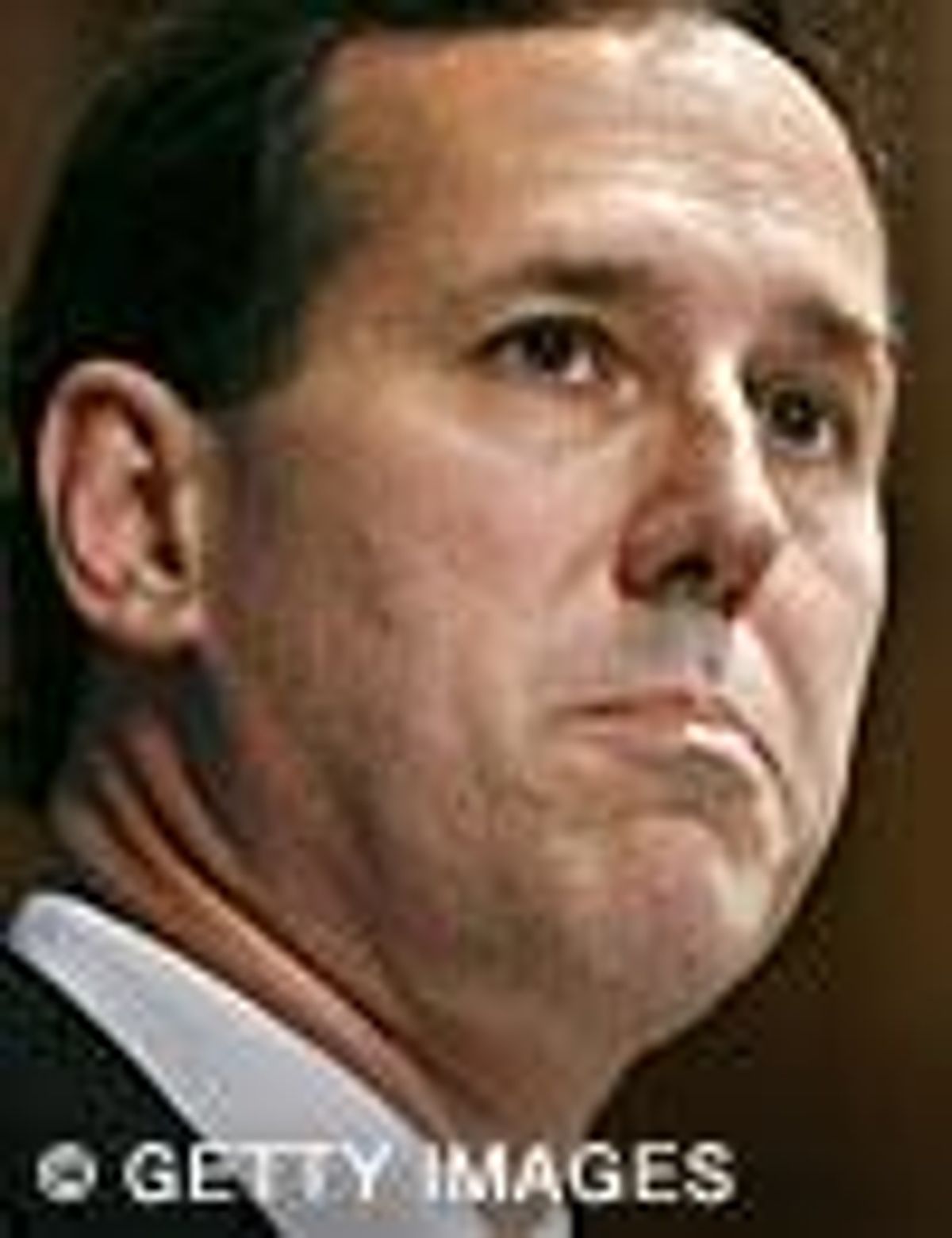Democrat Bob
Casey highlights his religious work while antigay Republican
senator Rick Santorum seeks out evangelical Christians, a
reflection of the fierce fight for voters of faith in
the contentious race for the U.S. Senate in
Pennsylvania. Casey, who is a Catholic, has been talking
openly about his religious upbringing and his work with the
Jesuit Corps. He unveiled a 60-second television ad in
the Philadelphia market Tuesday featuring a former
student talking about Casey's mentoring from days in
the corps' inner-city program.
Meanwhile, the
two-term Santorum, who also is Catholic, has been
outspoken on issues consistent with the church's teachings
such as opposition to abortion and same-sex marriage.
Santorum also raised the ire of gays and lesbians
everywhere when he compared homosexuality with
pedophilia and bestiality. In his latest book, It
Takes a Family: Conservatism and the Common
Good, he wrote, "Religious congregations are, by an
overwhelming margin, the most important intermediate
institution outside the family for the vast majority
of Americans."
On Wednesday
night in Pittsburgh, close to Santorum's hometown, Focus on
the Family Action, the political lobbying arm of James
Dobson's notoriously antigay Christian
group, held a "Stand for the Family" rally in
support of the religious right that drew about 3,000
people to Mellon Arena, according to arena security
officials. Santorum, who has regular meetings with a
religious working group, is slated to address the
conservative Family Research Council's voter summit on
Saturday.
At the Pittsburgh
rally, Dobson expressed disappointment that Republicans
did not, in his view, take stands on issues ranging from the
military to the definition of marriage that were more
in line with the so-called values voters who turned
out two years ago. Despite that, Dobson urged his
supporters to vote in larger numbers in November. "Whether
Republicans deserve the power they were given, the
alternatives are downright frightening," Dobson said.
Religion has been
at the forefront of the competitive Pennsylvania race,
pitting against one another two somewhat similar
candidates--both Catholic, both opposed to
abortion. It reflects a change from recent elections
when many Democrats tended to avoid talking about their
faith and essentially conceded religious voters to
Republicans. It also highlights a new willingness by
Democrats to discuss religion in personal terms.
On Monday,
Democratic senator John Kerry, the party's 2004 presidential
nominee, delivered a speech in California in which he talked
of "godly tasks" and described his own journey of
faith. In a recent ad in the Tennessee Senate race,
Democratic representative Harold Ford Jr., seated in a
church, tells voters, "I started church the
old-fashioned way. I was forced to, and I'm better for it."
This spring
Santorum addressed via video a get-out-the-vote training
session of the Pennsylvania Pastors Network. Once Casey
heard about it, he asked to speak to the group and was
given a chance. He did it in person. "To the extent
that he is successful, his campaign might become a
model for other Democrats in similar circumstances," said
John Green, a senior fellow at the Pew Forum on Religion and
Public Life.
Casey has held a
double-digit lead in polls over Santorum, the Senate's
number 3 Republican, although recent surveys have shown a
tightening contest. More than one third of voters in
Pennsylvania are Catholic. While the state has about a
half million more registered Democrats than
Republicans, voters tend to be socially conservative and
frequently vote along cultural lines.
While both
candidates are Catholic and are abortion foes, they differ
on some issues critical to religious voters. Casey
supports civil unions but opposes same-sex marriage.
Santorum advocated for a constitutional amendment
banning same-sex marriage; Casey said he didn't support it
because it was too divisive. (AP)



















































































Fans thirsting over Chris Colfer's sexy new muscles for Coachella